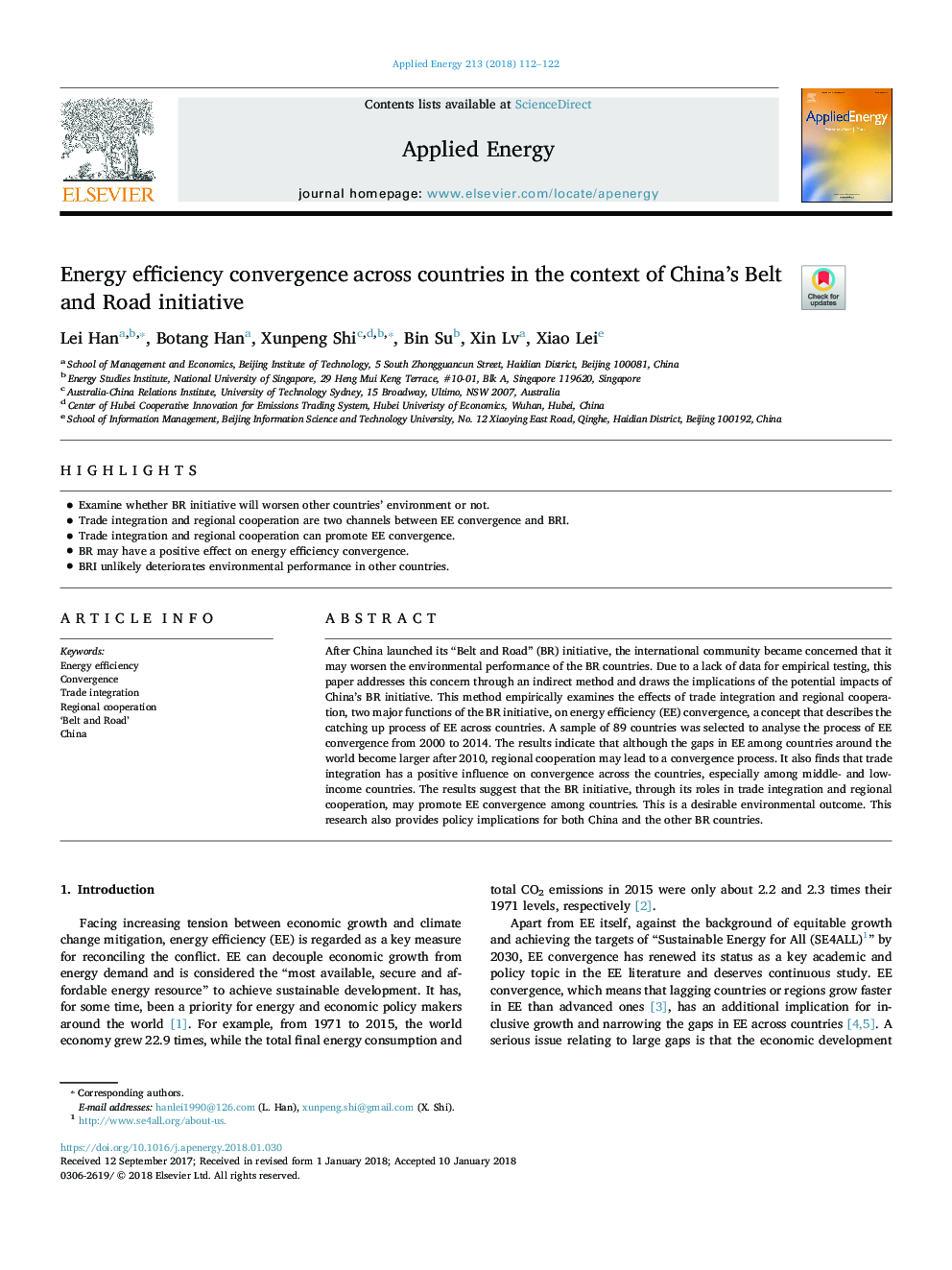| Article ID | Journal | Published Year | Pages | File Type |
|---|---|---|---|---|
| 6680761 | Applied Energy | 2018 | 11 Pages |
Abstract
After China launched its “Belt and Road” (BR) initiative, the international community became concerned that it may worsen the environmental performance of the BR countries. Due to a lack of data for empirical testing, this paper addresses this concern through an indirect method and draws the implications of the potential impacts of China's BR initiative. This method empirically examines the effects of trade integration and regional cooperation, two major functions of the BR initiative, on energy efficiency (EE) convergence, a concept that describes the catching up process of EE across countries. A sample of 89 countries was selected to analyse the process of EE convergence from 2000 to 2014. The results indicate that although the gaps in EE among countries around the world become larger after 2010, regional cooperation may lead to a convergence process. It also finds that trade integration has a positive influence on convergence across the countries, especially among middle- and low-income countries. The results suggest that the BR initiative, through its roles in trade integration and regional cooperation, may promote EE convergence among countries. This is a desirable environmental outcome. This research also provides policy implications for both China and the other BR countries.
Related Topics
Physical Sciences and Engineering
Energy
Energy Engineering and Power Technology
Authors
Lei Han, Botang Han, Xunpeng Shi, Bin Su, Xin Lv, Xiao Lei,
